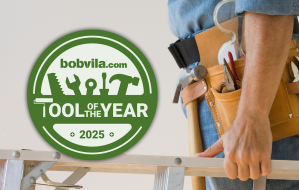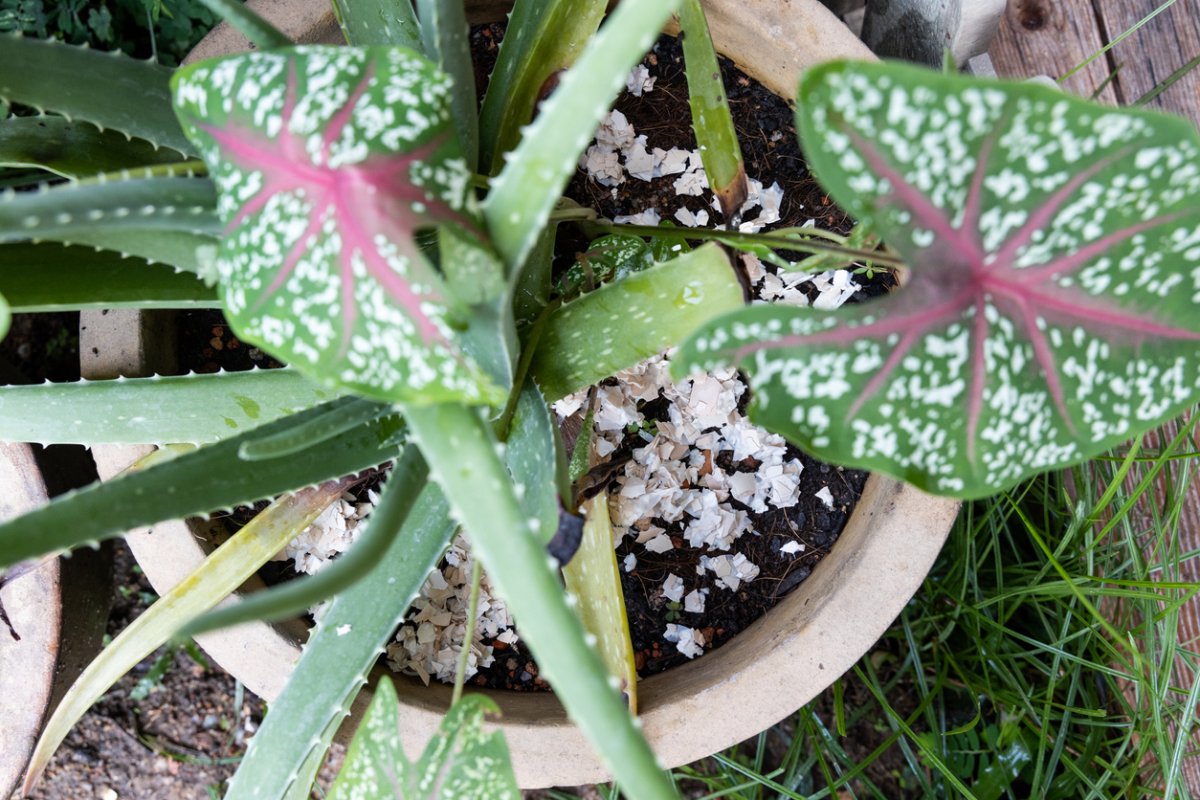

We may earn revenue from the products available on this page and participate in affiliate programs. Learn More ›
If you are into recycling and have learned the most environmentally friendly ways to dispose of your plastics and aluminum cans, you might be wondering what to do with the kitchen leftovers in your trash—including eggshells. Is there any way to repurpose them? Actually, there is.
Using eggshells for plants seems a strange concept, but they are loaded with calcium, one of the secondary macronutrients in soil that can help stimulate plant growth. However, getting eggshells’ calcium absorbed into the soil can be a bit tricky. That’s why experts recommend very finely crushed eggshells for garden use.
Benefits of Using Eggshells for Plants
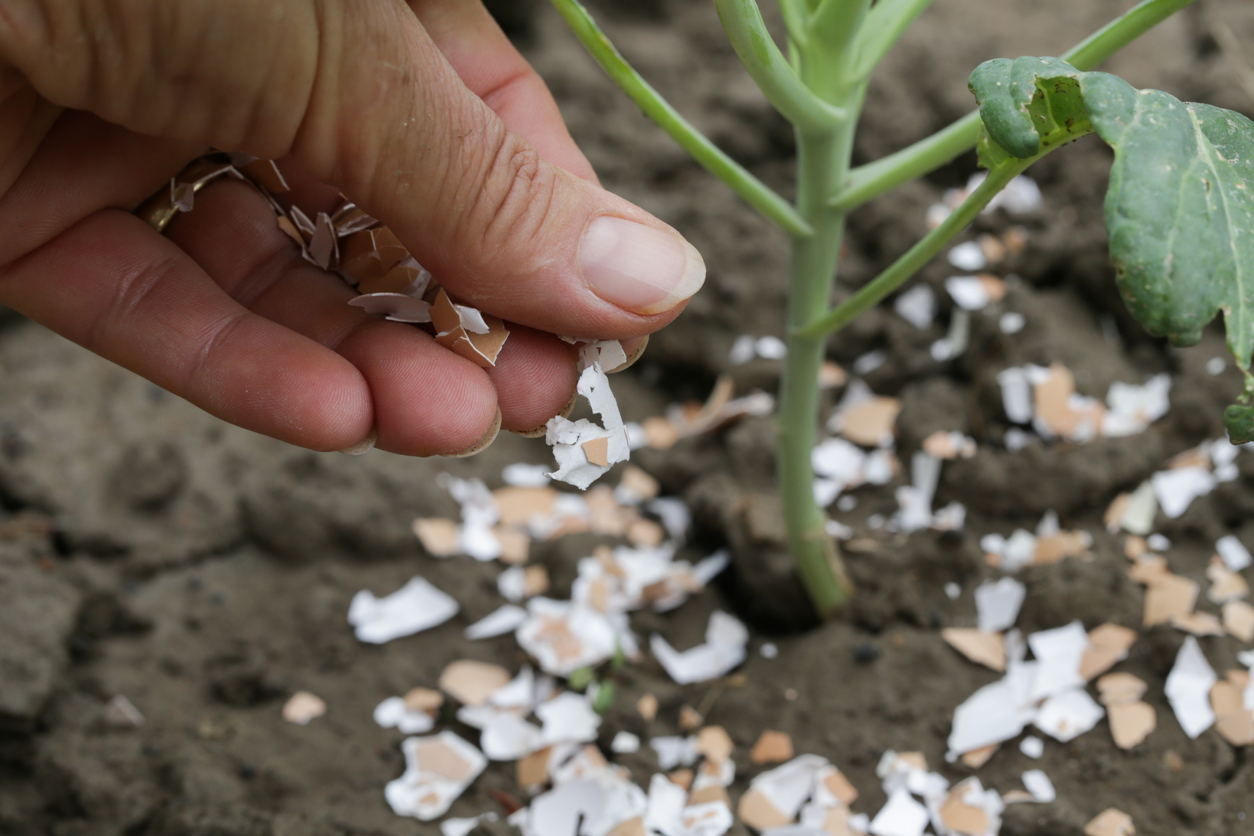
When considering the benefits of using eggshells in the garden, keep in mind that the first and third benefits listed here may or may not be a good thing; it depends on how high the calcium level already is in your soil and whether the plants you are growing prefer high or low pH.
Eggshells add calcium to garden soil.
Eggshells can add calcium to your garden loam but aren’t likely to prevent blossom end rot in tomatoes, since that generally is caused by watering issues or root damage rather than an actual calcium deficiency in the soil. Also, lightly crushed eggshells break down too slowly to be of much help. If you want them to be absorbed more quickly, pulverize them into a fine powder with an old coffee grinder or mortar and pestle.
Composted eggshells improve soil quality.
An additional way to use eggshells for gardening is to add them to your compost pile or your composting service’s bin. As with the other ingredients, they eventually will decompose to produce the humus that improves soil. For that use, too, you should grind them first if you can. Otherwise, eggshells in compost probably still will be poking white shards out of your otherwise black humus in spring.
Eggshells raise pH for potted plants.
As for eggshells in potted plants, Christopher Enroth, horticulture educator with University of Illinois Extension, notes, “Eggshells have been shown to increase soil pH in greenhouse studies where plants are growing in pots. The small volume of soil contained in a pot is far different than the massive volume of soil in a backyard garden…It is unlikely that the average homeowner could generate enough eggshells to raise their soil pH.”
Composting Eggshells
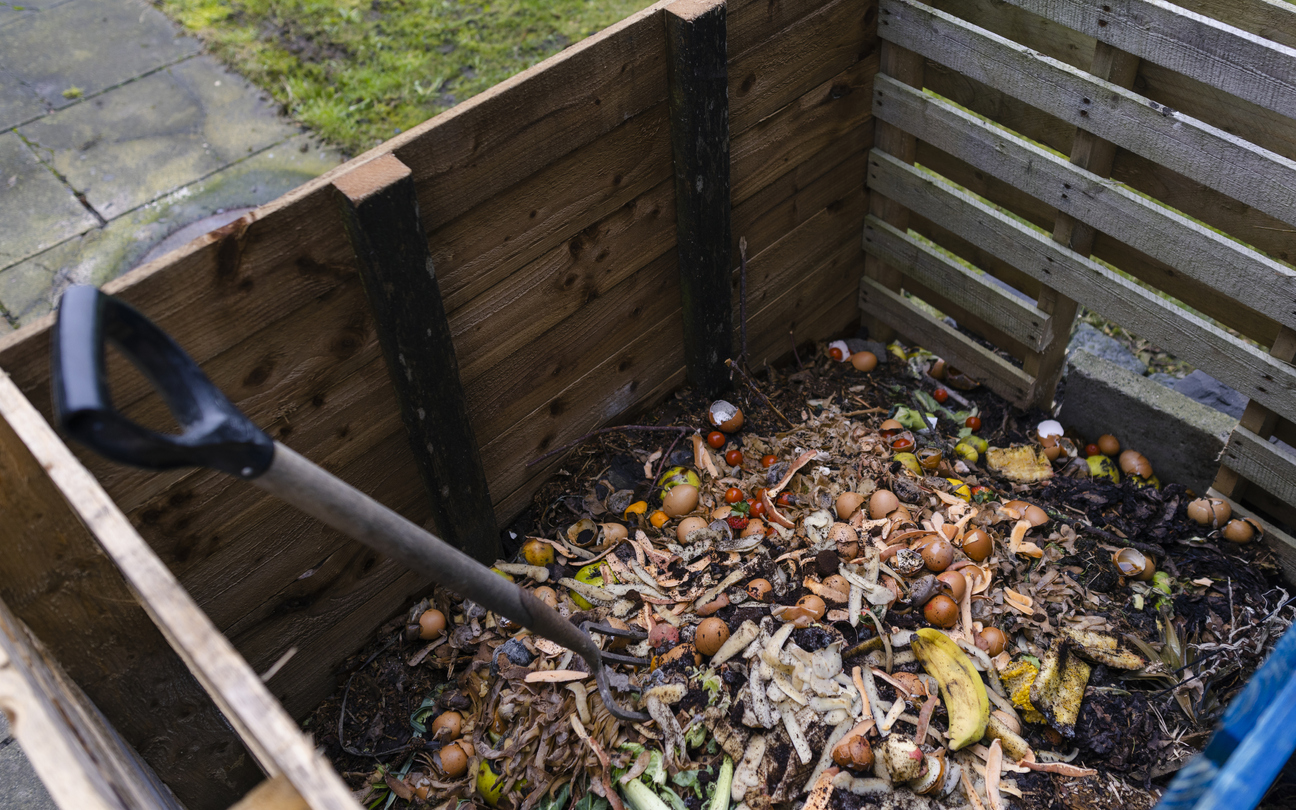
Before composting eggshells, dry them and then reduce them to powder with your coffee grinder or mortar and pestle, and work them into your compost pile. If you are worried about Salmonella in the finished compost, keep in mind that the temperatures generated by compost during its breakdown (generally higher than 140 to 160 degrees Fahrenheit) should kill any of that bacteria from the shells.
As Beth Clawson of Michigan State University Extension explains, the bacterium Salmonella is made up of several genera and subgroups. “Not all of them are transferable to humans but all of them exist in the environment all the time.” According to Clawson, after the composting process is complete and the compost has cured, the level of the pathogens in compost will resemble that of the surrounding soil, especially since the eggshells are only a small portion of the materials added to the compost pile.
Making Eggshell Tea
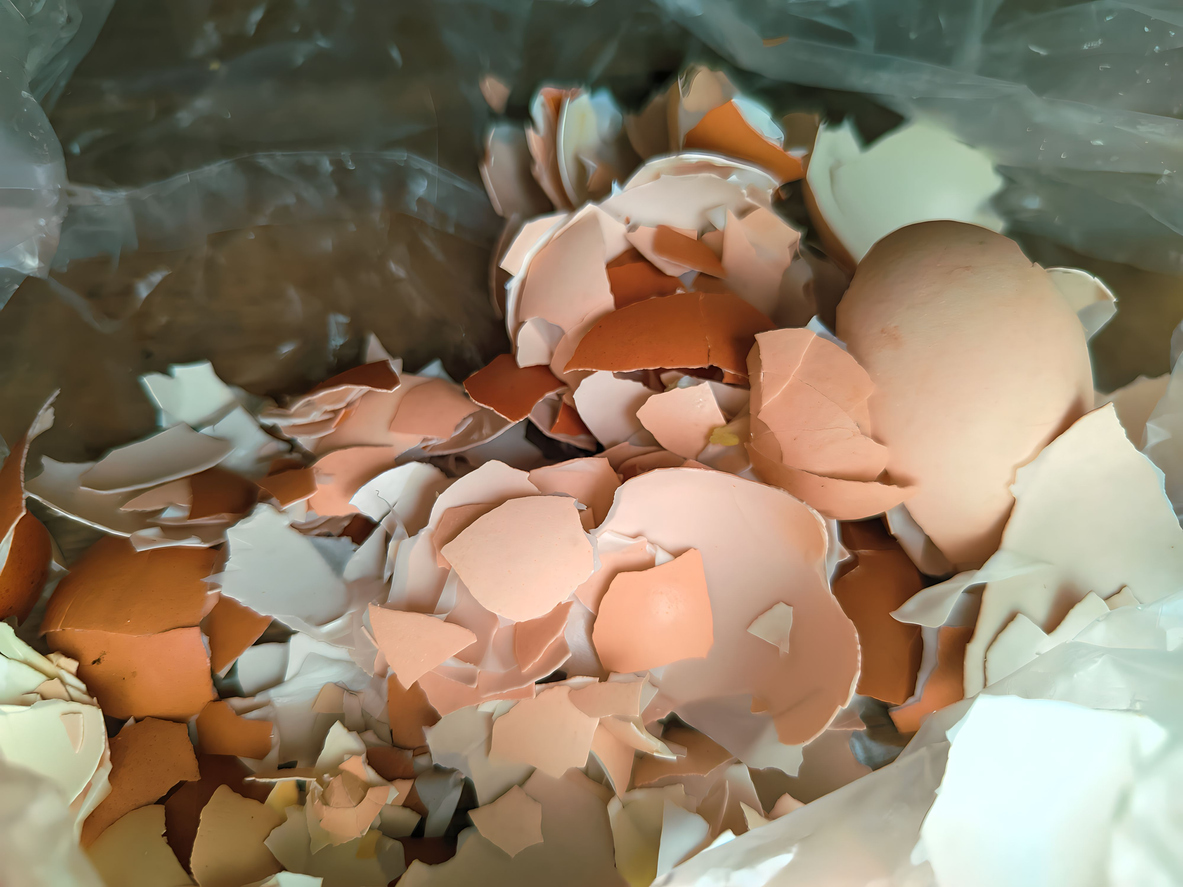
If you find that your soil is calcium deficient, you may want to try brewing a little eggshell tea to use as one of your secret ingredients for garden growth. In The Truth About Garden Remedies, Jeff Gillman recommends that you boil 10 to 20 eggshells for several minutes in 1 gallon of water and allow them to sit in the cooling water overnight.
After you fish out the eggshells, apply a couple of cups of the solution to each calcium-loving plant in your garden about once every 2 weeks. And, yes, you still will want to add those boiled eggshells to your compost.
Direct Application
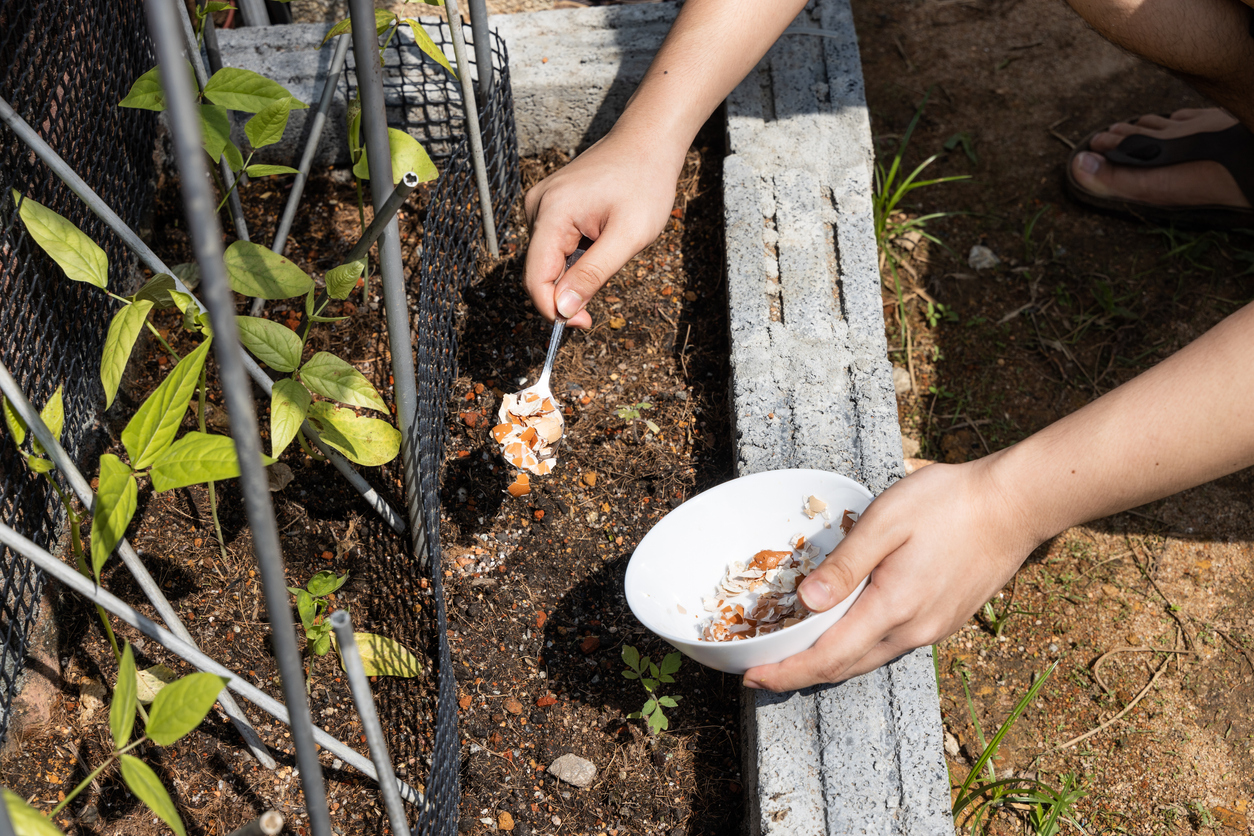
Before applying eggshell fertilizer to your garden, reduce the shells to a fine powder, which looks similar to lime. Then spread it over the surface of the soil and mix it in. You may want to apply it in autumn so that you can improve your soil over winter. Gillman recommends the equivalent of four or five eggshells per plant for garden plants and per pot for potted plants.
Avoid applying the powder to ground already high in calcium since eggshells’ benefits may turn to problems instead. According to the University of Maryland Extension, “Excess calcium can interfere with the absorption of other needed nutrients such as potassium, magnesium, phosphorus, iron, manganese, boron, and zinc.”
Eggshells for Backyard Birds
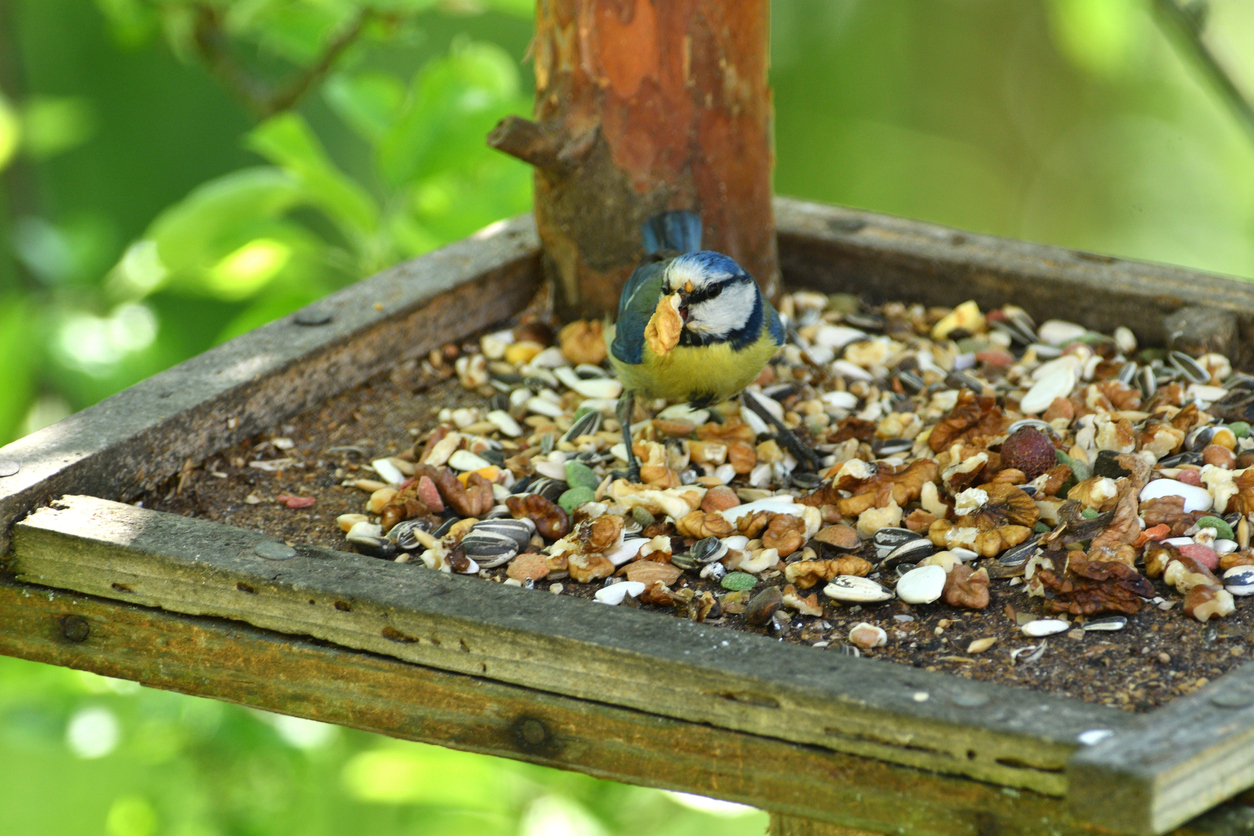
Eggshells’ uses aren’t confined to your garden. If you don’t want the bother of pulverizing them, you can tear them up into small pieces and feed them to the wild birds. Those songsters need grit in their diet and may have difficulty finding any when the ground is covered with snow.
This is easiest with boiled eggs, which have been sterilized by the boiling process and should require no further cleaning. If you are using shells from raw eggs, heat them in your oven at 250 degrees Fahrenheit for 20 minutes to kill any bacteria before you cool them and add them to your bird buffet.
